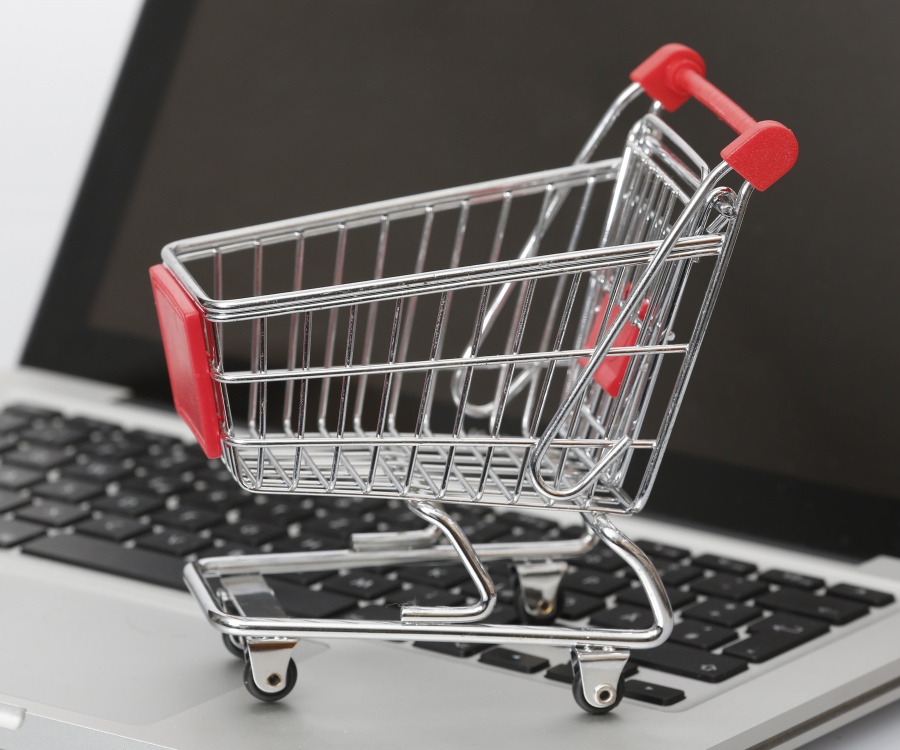
Smartphones and tablets are no longer just mere communication tools. Today modern devices do not just replace the camera and MP3 Player. Internet-capable mobile phones are turning more and more into sales consultants and sales counters, and are eventually going to replace the wallet. However, the new functions also bring new risks. Not only does the user lose control over his/her data, the fast and easy mobile payment services can also make it hard to keep track of your spending.
Almost 50 percent of all sold cell phones today are Smartphones. With the increasing expansion of the devices, the demand for mobile data services also increases. Based on information by the Federation of German Consumer Organizations (vzbv), 2.9 million German consumers already took advantage of mobile shopping for goods and services in 2011. More than five million people got information via a mobile shopping app before they purchased items. However, the user for the most part only sees the positive aspect of this: he/she quickly and conveniently obtains the needed information, such as the next train connection, the best price or interesting test results on products and stores. Yet in doing so, oftentimes more data than needed for this service is being collected.
Unseen data acquisition
In most cases, the user is not aware of what data is being stored and passed on. ”Many apps are on the edge of legality“, says vzbv Management Board Member Gerd Billen. ”The temptation is enormous to misuse the accumulated data in mobile commerce. To prevent fraudulent use, Germany needs effective and self-determined data protection.“ The user should be able to recognize which data about him/her and his/her behavior is being stored.
German consumers are especially cautious
Until recently and especially in Germany the assumption was that mCommerce would still take some time to prevail in the local market. On the one hand, this was due in particular to the nationally distinct data protection concerns. On the other hand, it was also because of the still lacking market penetration of the corresponding equipment, namely Smartphones and tablets. Even though laptops and notebooks are also portable devices with wireless Internet access, the current tablets and Smartphones are more important for mCommerce. That’s because with notebooks, the user opens the browser to go online shopping and not a mobile-optimized app.
New devices bring new challenges for retailers
Smartphones and tablets differ from the “old” devices just by their size and operation alone. That is why retailers have to make sure not to transmit their eCommerce architecture at a 1:1 ratio onto the mobile device, but to develop a new option that is adapted to the new requirements for the handling and safety of web pages, apps and transactions. By now, mCommerce in Germany has experienced a distinct upward trend –just in 2011 alone, the number of users for mobile services has doubled.
Customers have doubts about online transaction safety
Despite the pleasant development of user numbers, mCommerce in Germany still suffers from one important factor: the trust in mobile payment systems. Many users shy away from handing out their account information. However, this is not due to the relatively well-developed technical infrastructure, but can be seen as more of a psychological problem.
In the current "Mobile Commerce in Germany" study by ECC Handel (ECC Retail), 33.8 percent of users list concerns about data security as the main reason for not shopping with their Smartphone. Many consumers therefore still prefer the traditional way of paying by invoice, since you don’t have to reveal any sensitive payment information in an online store. For the online retailer, paying by invoice however always involves the risk of payment default. Storeowners should also pay attention to not just offering one payment procedure, since 37.5 percent of users switch online shops if their preferred payment method is not available.
Preferred payment methods and the fear of hidden costs
Internet specific payment options like PayPal (currently used by 16 million users in Germany) play a key role in current use – approximately two-thirds of Smartphone shoppers have already used this payment method. Invoices are number two, followed by direct debits and credit cards. The least popular methods for respondents are advance payment and cash on delivery. Presumably not much will change in this ranking order in the future – the currently popular payment methods will continue to increase in popularity, whereas only roughly 15 percent of those who presently don’t use these options would like to use advance payment and cash on delivery as a method.
At the same time, 28 percent of users are also worried about hidden costs. Payment service providers should therefore fall back on their experience in eCommerce, and take steps that were also necessary to establish ePayment solutions. This provides them with the opportunity to remove the two key obstacles from the consumers’ point of view out of the way through intensive awareness training and transparency. This way, retailers, who rely on a well-known payment service provider and trust consumers, can thus gain a competitive advantage.
Customer communication is the key to success
User data protection concerns are therefore more of an abstract nature. This is why there is only one way for retail to continue to increase the number of mCommerce users: comprehensive communication of safety measures with which transactions and sensitive data are being protected. Especially when it comes to the topic of safety, compared to eCommerce, mCommerce provides one key advantage, though only few customers know about it. SIM card, your own ID and having to enter a PIN provide clear identification that makes transaction and data transmission comparatively safe through additionally encrypted transmission. This is why in mCommerce it is also necessary for the customer to know what data is being collected and which of the participating players (payment service provider, retailer or bank) processes what data for what purpose, when, where and how. Comprehensive customer communication is therefore more important than technical security measures to gain trust and increase the perceived safety.
Daniel Stöter; iXtenso.com
Firstpublication on EuroCIS.com









